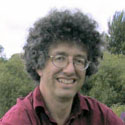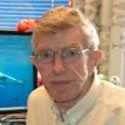Advisory Board and Editors Marine Biology

Peter R Girguis
Peter Girguis joined the Harvard faculty as an assistant professor in 2005, becoming full professor in 2012. His research efforts are aimed at better understanding how microbes mediate matter and energy flow through Earth’s biosphere. He develops novel methods and technologies for studying microbially-mediated energy flow and harvesting, including laboratory and in situ incubators that better mimic environmental conditions, and field-deployable instruments such as underwater mass spectrometers, carbon isotope analyzers and high-performance hydrogen sensors that allow him to study microbial processes in the lab and in situ.
Girguis has authored or co-authored over 85 publications, including papers in Nature, Science, the Proceedings of the National Academy of Sciences, and the Proceedings of the Royal Society. Girguis is a board member of the Ocean Exploration Trust (OET), is on Schmidt Ocean Institute vehicle advisory boards, and served as chair of the National Science Foundations’ Deep Submergence Science Committee (DeSSC).
Girguis’ honors include 5 consecutive years of commendations for distinguished teaching, the 2007 and 2011 Lindbergh Foundation Award for Science & Sustainability, a 2010 Honorable mention in the ENI International Energy and the Environment Award, a feature in the 2008 Discover Magazine’s “10 Everyday Technologies That Can Change the World” (bio-powered lights), and a 2008 Honorable Mention in the Buckminster Fuller Innovations in Science Award.

Tamar Guy-Haim
My main research interests are marine biodiversity and biogeography, with particular emphasis on species interactions, bioinvasions, and climate change. I use multidisciplinary approaches and combine experimental ecology, physiology, biogeochemistry, phylogeny, and modeling.

Alan Hastings
Distinguished Professor of Environmental Science and Policy. Fellow of the American Academy of Arts and Sciences. Former President of the Society for Mathematical Biology and Editor of the Encyclopedia of Theoretical Ecology.

Brandon P Hedrick
Assistant Professor of Biomedical Sciences, Cornell University
An evolutionary biologist, paleobiologist, and ecologist primarily interested in comparative morphology. I work across the vertebrate tree including reptiles, amphibians, and birds, but specialize on bats and dinosaurs.

Zunnan Huang
Professor in Chemistry; Director, Key Laboratory of Big Data Mining and Precision Drug Design; Director, Key Laboratory of Computer-Aided Drug Design of Dongguan City; Vice Dean, Graduate School of Guangdong Medical University; PhD in Computational Chemistry and Physical Chemistry obtained from the University of Oklahoma; Guest Editor, Current Pharmaceutical Design, Current Medicinal Chemistry, Frontiers in Chemistry, Molecules; Reviewer for more than 50 SCI journals including Journal of the American Chemical Society, Science Advances, Nature Communications and Briefings in Bioinformatics. Authors of more than 117 SCI papers with an accumulated IF of 600.

Izwandy Idris
Dr. Izwandy Idris is Head of the South China Sea Repository and Reference Centre (RRC) within the Institute of Oceanography and Environment at the Universiti Malaysia Terengganu.
His research interests include the systematics (taxonomy), biology, and ecology of marine invertebrates, with in-depth works on the marine worm (Annelida: Polychaeta). Dr. Idris' research group works on several aspects including small-scale biogeography in coastal and estuary, biofouling ecology, biology, and ecology of commercially related species for sustainable application. His group also has started taking an interest in deep-sea polychaetes.
The overarching objectives of Dr. Idris' research group is to systematically catalogue the marine invertebrate diversity in Malaysia and to apply the knowledge on the ecological and biological requirements of the species for the betterment of people through economic empowerment, health, and the environment in a sustainable manner.

Łukasz Jaremko
Dr. Łukasz Jaremko is Associate Professor at King Abdullah University of Science and Technology.
Research in Dr. Jaremko's Molecular Diagnostics and Drug Discovery (MD3) group focuses on atomic-level insight into essential and topical questions from biochemistry and medicine.

Nicholas W Jeffery
Aquatic science biologist at the Bedford Institute of Oceanography, Department of Fisheries and Oceans Canada; Adjunct Faculty, Department of Integrative Biology, University of Guelph; PhD from the University of Guelph in Integrative Biology.

Malcolm Jobling
Professor of Fish Biology and Aquaculture. Authored and edited books on fish biology, physiology and nutrition, and aquaculture, and serving editorial board member for fisheries and aquaculture journals. Formerly, member of EUCost, ICES and academic society steering committees.

Magnus L Johnson
I am a marine scientist with eclectic interests including crustacean biology and fisheries, fisheries management generally, krill swimming behaviour, cleaner fish, coral reef systems, the relationship of marine commensals and their hosts and the eyes of shrimps. I work in the School of Environmental Sciences at the University of Hull where I am the Director of the MSc in Environmental Change Management and Monitoring. I am a fellow of the Marine Biological Association and a board member of the Science-Art foundation "Invisible Dust".

Sheri L Johnson
A behavioural ecologist with broad interests in sexual selection, mating system evolution, sperm biology, behavioural epigenetics, and the effects of environmental challenges (e.g., hypoxia, toxins, and microplastics) on the reproductive and behavioural ecology of animals. Study systems include marine invertebrates, marine and freshwater fishes (including zebrafish) and terrestrial invertebrates (weta and stag beetles). Overall, Dr Johnson's research programme investigates both genetic and environmental effects on behaviour and reproductive fitness.

David W Johnston
Dave Johnston is a biological oceanographer and marine conservation ecologist whose research focuses on the habitat needs of marine vertebrates in relation to pressing conservation issues.

